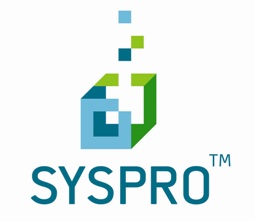Tax incentives and capital financing have been cited as the key to unlocking manufacturing technology in Kenya. This is according to a survey by SYSPRO, a global provider of industry-built Enterprise Resource Planning (ERP) software for manufacturers and distributors, and Strathmore University.
The research survey by SYSPRO was derived from close to 100 companies that were drawn from 12 different segments in the production and manufacturing industry. The study explored productivity and competitiveness of the manufacturing sector in Kenya, the role of new technologies in improving the sector and the state of adoption and use of these new technologies.
The findings of this study were presented at a launch event attended by Ms Betty Maina, the Principal Secretary, State Department of Investment and Industry in the Ministry of Industry, Trade and Cooperatives.
They demonstrated that the most important initiatives that can increase competitiveness both for local and export markets are favorable taxes and favorable regional preferential treaties. Other factors included reduction in cost of production, upgrading the current technologies deployed and increasing production efficiency.
Strathmore, JGI-University ink deal on data science
Speaking during the launch, Prof. Ismail Ateya, Principal Investigator and Dean of Research and Innovation at Strathmore University said that over 85 per cent of companies in the survey were either semi-automated or fully-automated. The majority were found to be holding on to outdated production units because of high cost of spare parts, unavailability of locally manufactured spare parts and inability to differentiate quality from fake until used.
Prof. Ismail noted that counterfeits were a large hindrance to local purchasing. High software and hardware costs as well as the lack of skilled labor were cited as major hindrances to technology adoption. Manufacturers who took part in the study proposed to have tax incentives for technology purchases, better training for local technology partners, improved availability of new technologies locally, availability of affordable automation and robotics technology as well availability of skilled technical workers.
On affordability for manufacturing software solutions, SYSPRO’s Head of Channel, Pravir Rai said that keeping IT costs low is very important for businesses such as SMEs. “A lot of software solutions in the market are unaffordable because they come with inbuilt capabilities that a business may not necessarily need at a given time. With SYSPRO’s ERP solution, we offer choice and flexibility,” he said. he added that a company doesn’t need to buy a whole stack of applications if all it needs is just 1 or 2 modules to begin automating its business. “SYSPRO is divided in modules that ensure it is not only affordable but also scales to meet the operational needs of a business as it grows. We have found this to be very popular with SME Manufacturers,” he said.
The study by SYSPRO also revealed that more than half of the manufacturers interviewed felt that the government could still do more to make the sector competitive and attractive to potential investors. Development of infrastructure, provision of exemptions, grants and subsidies as well as purchasing guarantee from the government were highly rated.
Support for apprenticeship, graduate internships and technical courses in universities was identified as a major initiative that would make local manufacturing an attractive business venture. It was noted that over 50 per cent of the respondents felt that Kenya’s manufacturing sector would have difficulty competing with counterparts in other developed countries that have advanced education and training systems.
Other notable factors that need to be urgently addressed include high cost of capital financing, which remains a major hurdle in the manufacturing sector, and energy which was reported as the main external factor that adversely affected business operations in the last 2-3 years. Political climate, taxes, cheap imports and exchange rates were rated as negatively impacting business operations while technical skills, labor wages, climate conditions and visa requirements were rated as having the lowest adverse effect on the business operations comparatively.
Regarding future projections and strategic planning, companies interviewed prioritized product development, advertisement and marketing, computer systems, hardware and software as potential investment areas to improve business operations in the next financial year.








